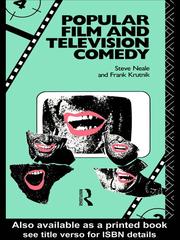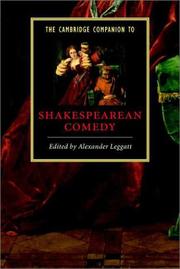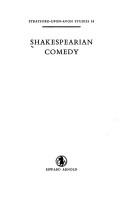| Listing 1 - 10 of 76 | << page >> |
Sort by
|
Multi
ISBN: 9780748637522 0748637516 9780748637515 0748637524 9780748637539 0748637532 0748671226 9780748671229 1282620320 9781282620322 9786612620324 6612620323 147447103X Year: 2009 Publisher: Edinburgh Edinburgh University Press
Abstract | Keywords | Export | Availability | Bookmark
 Loading...
Loading...Choose an application
- Reference Manager
- EndNote
- RefWorks (Direct export to RefWorks)
Even though sitcom has been a consistent staple of broadcasting the world over, rigorous academic work on it as a genre remains limited. This book examines sitcom as an industry in terms of production, audiences and texts, drawing on a range of examples and case studies in order to examine the genre's characteristics, social position, and pleasures. In highlighting this long-lasting and popular form of television, it offers insights into genre theory and explores how the comic aim of sitcom forms a central characteristic of the genre. Brett Mills takes a global view of sitcom, examining international examples as well as those produced by the more dominant British and American broadcasting industries, in order to explore the relationships between sitcom, nation, and identity. Sitcoms considered include Extras, My Family, Curb Your Enthusiasm, One Foot in the Grave, Peep Show, Summer Heights High, Popetown, and Friends. Key Features *Draws on original research into the television industry, incorporating interviews with sitcom writers, directors and producers *Includes research on audience responses to sitcom, with reference to offence, pleasure, and social change *Offers detailed textual analyses of a range of programmes, drawing on Humour Theory to explore the ways in which jokes and comic moments work *Outlines the future for sitcom, considering new media developments and the changing relationships between broadcasters and audiences.
Book
ISBN: 1469618702 1469618699 9781469618692 9781469618685 1469618680 9781469618708 Year: 2014 Publisher: Chapel Hill
Abstract | Keywords | Export | Availability | Bookmark
 Loading...
Loading...Choose an application
- Reference Manager
- EndNote
- RefWorks (Direct export to RefWorks)
Tribal Television: Viewing Native People in Sitcoms
Book
ISBN: 1438461321 9781438461328 9781438461311 1438461313 9781438461304 1438461305 Year: 2016 Publisher: Albany
Abstract | Keywords | Export | Availability | Bookmark
 Loading...
Loading...Choose an application
- Reference Manager
- EndNote
- RefWorks (Direct export to RefWorks)
This updated and expanded anthology offers an engaging overview of one of the oldest and most ubiquitous forms of television programming: the sitcom. Through an analysis of formulaic conventions, the contributors address critical identities such as race, gender, and sexuality, and overarching structures such as class and family. Organized by decade, chapters explore postwar domestic ideology and working-class masculinity in the 1950s, the competing messages of power and subordination in 1960s magicoms, liberated women and gender in 1970s workplace comedies and 1980s domestic comedies, liberal feminism in the 1990s, heteronormative narrative strategies in the 2000s, and unmasking myths of gender in the 2010s. From I Love Lucy and The Honeymooners to Roseanne, Cybill, and Will & Grace to Transparent and many others in between, The Sitcom Reader provides a comprehensive examination of this popular genre that will help readers think about the shows and themselves in new contexts.For access to an online resource created by Mary Dalton, which includes interviews with contributors and course lectures, visit: The Sitcom Reader: A Companion Website @ https://build.zsr.wfu.edu/sitcomreader
Book
ISBN: 1501335758 1501335731 150133574X 9781501335747 9781501335730 9781501335723 1501335723 Year: 2017 Publisher: London : Bloomsbury Academic,
Abstract | Keywords | Export | Availability | Bookmark
 Loading...
Loading...Choose an application
- Reference Manager
- EndNote
- RefWorks (Direct export to RefWorks)
"The Comic Event approaches comedy as dynamic phenomenon that involves the gathering of elements of performance, signifiers, timings, tones, gestures, previous comic bits, and other self-conscious structures into an "event" that triggers, by virtue of a "cut," an expected/unexpected resolution. Using examples from mainstream comedy, The Comic Event progresses from the smallest comic moment -jokes, bits- to the more complex -caricatures, sketches, sit-coms, parody films, and stand-up routines. Judith Roof builds on side comments from Henri Bergson's short treatise "Laughter," Sigmund Freud's Jokes and Their Relation to the Unconscious, and various observations from Aristotle to establish comedy as a complex, multifaceted practice. In seeing comedy as a gathering event that resolves with a "cut," Roof characterizes comedy not only by a predictable unpredictability occasioned by a sudden expected/unexpected insight, but also by repetition, seriality, self-consciousness, self-referentiality, and an ourobouric return to a previous cut. This theory of comedy offers a way to understand the operation of a broad array of distinct comic occasions and aspects of performance in multiple contexts."--Bloomsbury Publishing.
Comedy sketches. --- Comedy. --- Comic, The. --- Television comedies.
Book
ISBN: 0810891689 9780810891685 1299605435 9781299605435 9780810891678 0810891670 Year: 2013 Publisher: Lanham, Maryland
Abstract | Keywords | Export | Availability | Bookmark
 Loading...
Loading...Choose an application
- Reference Manager
- EndNote
- RefWorks (Direct export to RefWorks)
Jerome Kern (1885-1945) is considered one of the most versatile and influential of all American theatre and film composers. The Jerome Kern Encyclopedia consists of entries on people, theatre and film musicals, songs, subjects, and themes related to the composer. Not only are all of Kern's stage and screen projects covered, but there are also entries on all the major librettists and lyricists with whom he worked, as well as producers, directors, actors, and other individuals who figured prominently in his career. Approxim
Musicals --- Musical comedies --- Musical plays --- Musical revues, comedies, etc. --- Musical shows --- Operettas --- Shows, Musical --- Dramatic music --- Kern, Jerome,

ISBN: 1134946864 1280603755 9786610603756 0203131975 9780203131978 6610603758 9781134946815 1134946813 9781134946853 1134946856 9781134946860 0415046912 0415046920 9780415046916 9780415046923 9781138142176 1138142174 9781138142176 9781280603754 Year: 1990 Publisher: London New York Routledge
Abstract | Keywords | Export | Availability | Bookmark
 Loading...
Loading...Choose an application
- Reference Manager
- EndNote
- RefWorks (Direct export to RefWorks)
Steve Neale and Frank Krutnik take as their starting point the remarkable diversity of comedy's forms and modes - feature-length narratives, sketches and shorts, sit-com and variety, slapstick and romance. Relating this diversity to the variety of comedy's basic conventions - from happy endings to the presence of gags and the involvement of humour and laughter - they seek both to explain the nature of these forms and conventions and to relate them to their institutional contexts. They propose that all forms and modes of the comic involve deviations from aesthetic and cultural conventions and n
Comedy films. --- Comedy films--History and criticism. --- Comic, The. --- History. --- Television comedies. --- Television comedies--History. --- Comedy films --- Television comedies --- Comic, The --- Film --- Music, Dance, Drama & Film --- Ludicrous, The --- Ridiculous, The --- Comedy --- Wit and humor --- Comedies, Television --- Comedy programs --- Comedy programs, Television --- Comedy television programs --- Television comedy programs --- Television programs --- History and criticism --- Comedy films - History and criticism --- Television comedies - History --- History and criticism.
Book
ISBN: 2718103191 9782718103198 Year: 1982 Publisher: Paris Société d'édition d'enseignement supérieur
Abstract | Keywords | Export | Availability | Bookmark
 Loading...
Loading...Choose an application
- Reference Manager
- EndNote
- RefWorks (Direct export to RefWorks)
Corneille, Pierre --- French drama (Comedy) --- History and criticism --- Corneille, Pierre, --- Comedies --- -History and criticism --- -Corneille, Pierre --- -Criticism and interpretation --- Chronology --- Blessebois, Pierre Corneille --- Comedies. --- French drama (Comedy) - History and criticism --- Corneille, Pierre, - 1606-1684 - Comedies --- Corneille, Pierre, - 1606-1684
Book
ISBN: 0691066337 1306991633 9781400854813 1400854814 9780691066332 0691611661 9780691611662 9780691611662 Year: 1985 Publisher: Princeton, N.J. Princeton University Press
Abstract | Keywords | Export | Availability | Bookmark
 Loading...
Loading...Choose an application
- Reference Manager
- EndNote
- RefWorks (Direct export to RefWorks)
This book argues that the idea of metamorphosis is central to both the theory and practice of Shakespearean comedy. It offers a synthesis of several major themes of Shakespearean comedy--identity, change, desire, marriage, and comic form--under the master trope of transformation.Originally published in 1985.The Princeton Legacy Library uses the latest print-on-demand technology to again make available previously out-of-print books from the distinguished backlist of Princeton University Press. These editions preserve the original texts of these important books while presenting them in durable paperback and hardcover editions. The goal of the Princeton Legacy Library is to vastly increase access to the rich scholarly heritage found in the thousands of books published by Princeton University Press since its founding in 1905.

ISBN: 0521770440 9780521779425 9780521770446 0521779421 0511049331 0511998570 0511040741 0511118287 0511303890 051115545X 1280158999 0511034091 110748541X 9780511998577 Year: 2002 Volume: *61 Publisher: Cambridge Cambridge University Press
Abstract | Keywords | Export | Availability | Bookmark
 Loading...
Loading...Choose an application
- Reference Manager
- EndNote
- RefWorks (Direct export to RefWorks)
First published in 2001, this is an accessible, wide-ranging and informed introduction to Shakespeare's comedies and romances. Rather than taking each play in isolation, the chapters trace recurring issues, suggesting both the continuity and the variety of Shakespeare's practice and the creative use he made of the conventions he inherited. The first section puts Shakespeare in the context of classical and Renaissance comedy and comic theory, the work of his Elizabethan predecessors and the traditions of popular festivity. The second section traces a number of themes through Shakespeare's early and middle comedies, dark comedies and late romances, establishing the key features of his comedy as a whole and illuminating particular plays by close analysis. Individual chapters draw on contemporary politics, rhetoric, and the history of Shakespeare production. Written by experts in the relevant fields, the chapters frequently challenge long-standing critical assumptions.
Shakespeare, William, --- Comedies --- Comedy --- Shakespeare, William --- Handbooks, manuals, etc. --- Comic literature --- Literature, Comic --- Drama --- Wit and humor --- SHAKESPEARE, WILLIAM (1564-1616) --- COMEDIE (GENRE LITTERAIRE) --- COMEDIES --- GUIDES, MANUELS, ETC.

ISBN: 0713156546 0713156554 Year: 1972 Publisher: London : Edward Arnold,
Abstract | Keywords | Export | Availability | Bookmark
 Loading...
Loading...Choose an application
- Reference Manager
- EndNote
- RefWorks (Direct export to RefWorks)
82-2=20 --- Toneel. Drama--Engels --- English drama (Comedy) --- History and criticism. --- Shakespeare, William, --- Comedies. --- 82-2=20 Toneel. Drama--Engels --- SHAKESPEARE, WILLIAM (1564-1616) --- COMEDIES
| Listing 1 - 10 of 76 | << page >> |
Sort by
|

 Search
Search Feedback
Feedback About UniCat
About UniCat  Help
Help News
News